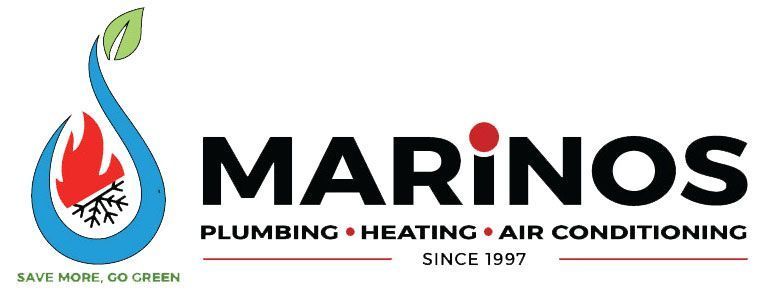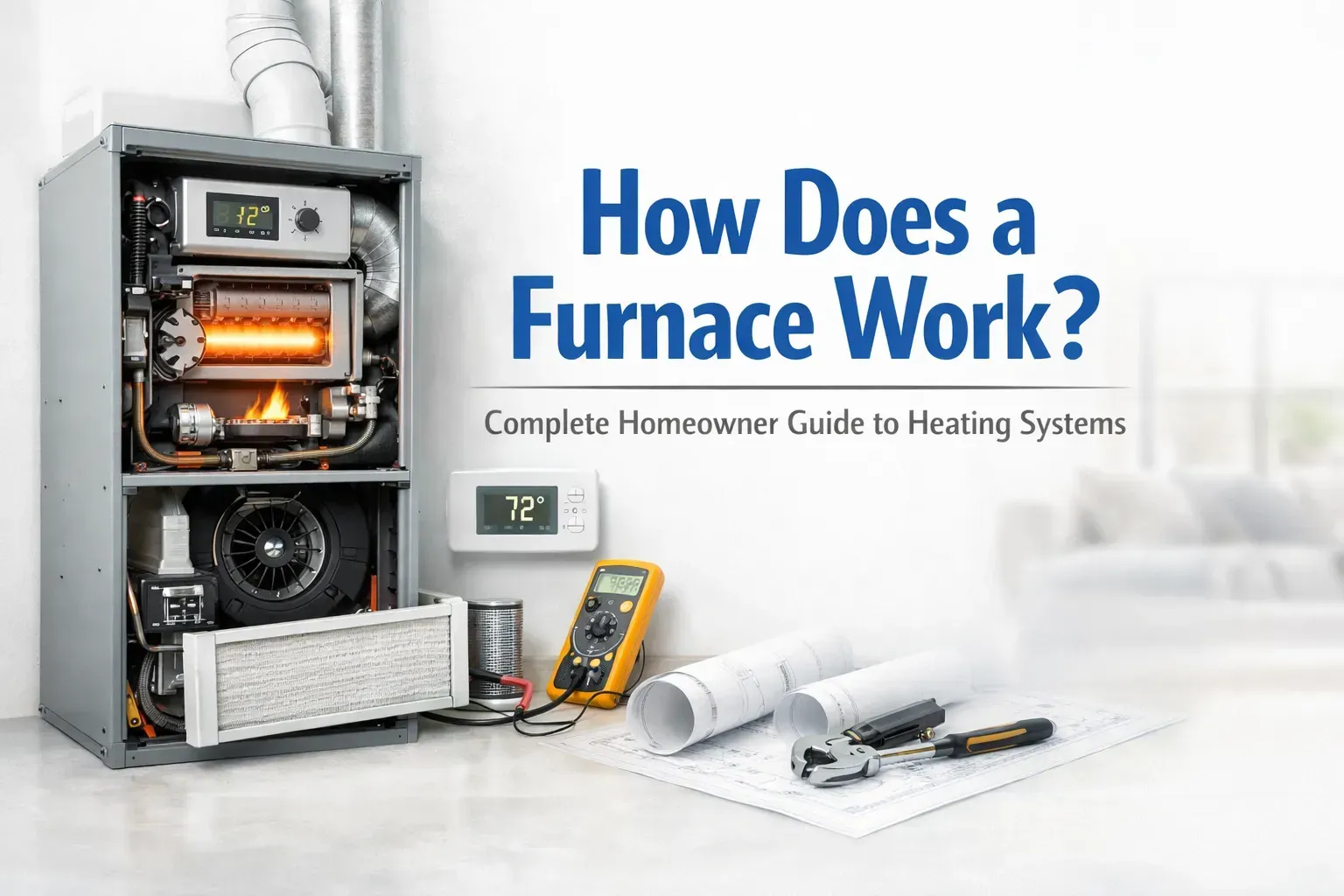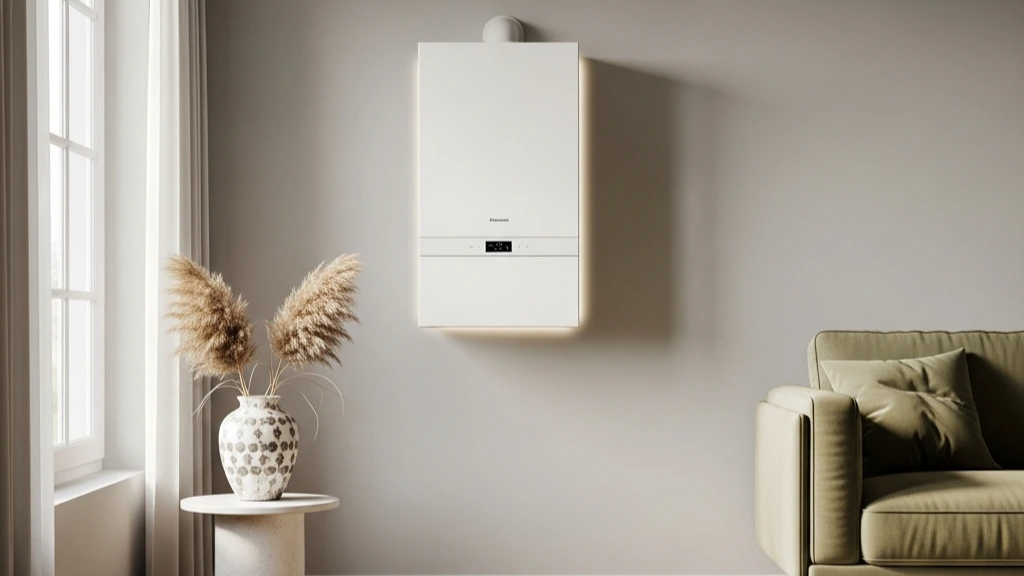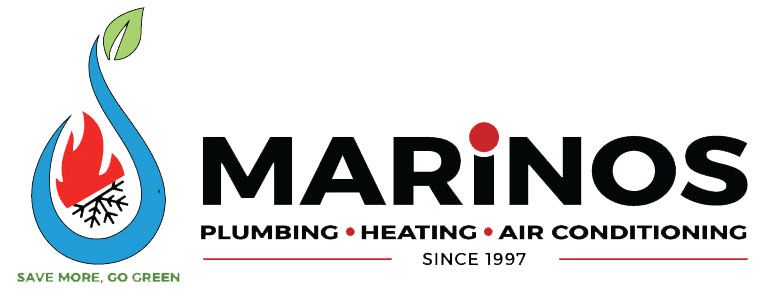Everything You Need to Know About Water Heaters & Boilers
When it comes to keeping your home comfortable, few appliances work as hard as your water heater and boiler. These two systems are often confused because both involve heating water, but they actually serve very different purposes.
A water heater is primarily responsible for delivering hot water for daily use—think showers, dishwashing, and laundry—while a boiler is designed to provide heating for your entire home, often through radiators or underfloor heating.
For homeowners making decisions about plumbing and heating upgrades or replacements, it is important to know the different types, efficiencies, costs, lifespans, and fuel efficiencies of these appliances.
If you are in the process of building a new home, replacing an old unit, or even just curious about these utilities, this guide will help you through everything you need to know about the water heaters and boilers.
By the end of this article, you’ll have a solid grasp of which system fits your home best, what maintenance is required, and how to maximize energy efficiency while keeping your electricity bills under control.
What Is the Difference Between a Water Heater and a Boiler?
Definition of Water Heater
A water heater is an appliance that supplies hot water for household chores like bathing and washing clothes. It works by heating and storing water to a fixed temperature of 120 to 140 degrees Fahrenheit.
The water is then distributed to all plumbing fixtures in the house. The two most popular varieties are storage tank and tankless water heaters. While the former keeps a reserve of water heated, the latter heats water instantly as it flows through the pipes.
Most water heaters rely on natural gas or electricity, although solar-powered and hybrid models are becoming more popular. Their primary function is to make sure you always have hot water for daily tasks like bathing, cooking, or washing clothes.
Definition of Boiler
In contrast, a boiler is an industrial appliance that provides hot water on a larger scale. It is used for space heating and also for showers. Water is heated in the boiler, or steam is produced, and passes through pipes to radiators, baseboard heaters, or radiant floor systems in the different rooms.
Sometimes, a dual-purpose system called a combination boiler or combi boiler is used that can provide hot water for domestic use and also provide heating.
Boilers are common in colder climates where efficient home heating is essential. These machines can be run by natural gas, electricity, propane, or oil.
Key Differences in Function
The biggest difference between the two lies in their purpose:
- Water heater → Supplies hot water for household use.
- Boiler → Provides heat for the entire home (and sometimes hot water, if it’s a combi model).
Another distinction is the temperature at which they operate. Water heaters typically heat water to a moderate level suitable for taps and showers, while boilers heat water to much higher temperatures for efficient space heating.
Common Use Cases
- Water Heater: Perfect for households that just need a constant reserve of hot water for daily living.
- Boiler: Ideal for homes in cold regions that require central heating.
- Combi Boiler: Best for smaller homes or apartments where space is limited and both heating and hot water are required from a single system.
In short, if you think of your house as a body, the water heater is like its kitchen faucet—focused on specific tasks—while the boiler is like its central heating system, keeping the whole body warm.
What Types of Water Heaters Are Available?
Storage Tank Water Heaters
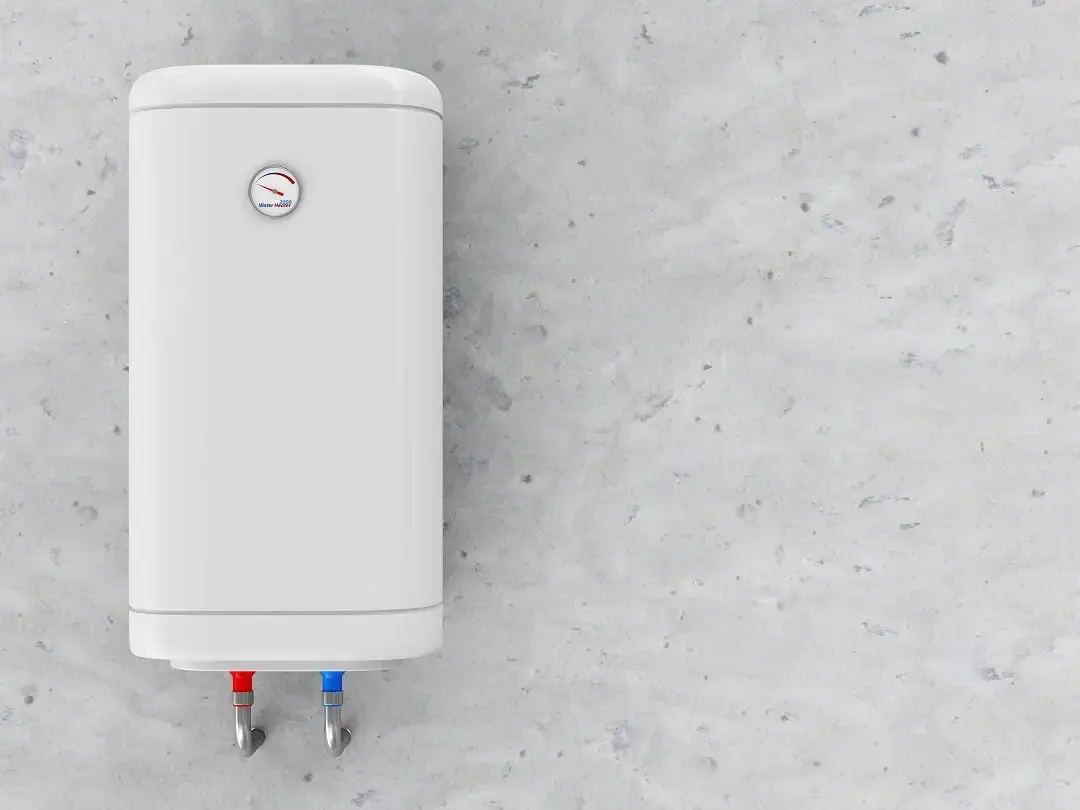
These are the most traditional and widely used water heaters. A large insulated tank holds water that’s constantly heated and ready for use. When a hot water tap is turned on, cold water replaces the hot water that is drawn from the top of the tank.
- Pros: Simple, reliable, relatively inexpensive to install.
- Cons: Limited hot water supply (After the tank gets empty, you must wait for it to refill and reheat).
Storage tank heaters typically last 8–12 years and are well-suited for families with consistent hot water needs.
Tankless (On-Demand) Water Heaters
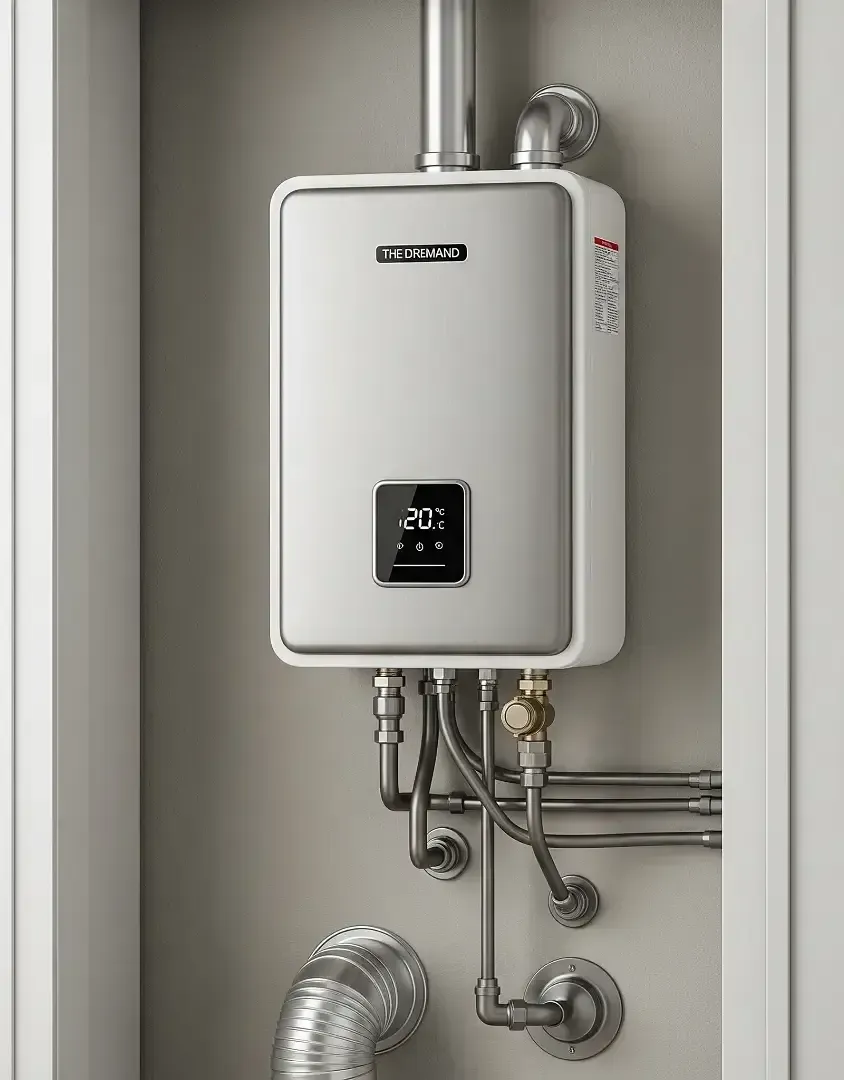
As the name suggests, these systems don’t store hot water. Instead, they heat it instantly as water passes through the unit.
- Pros: Endless hot water supply, smaller footprint, more energy-efficient.
- Cons: Higher upfront cost, may struggle with simultaneous high demand (like multiple showers running at once).
These are ideal for smaller households or those wanting to save on long-term energy costs.
Hybrid Water Heaters
A hybrid water heater is a mixture of a tank system and a heat pump. To warm the water, it pulls heat from the surrounding air. This approach drastically reduces energy usage compared to conventional systems.
- Pros: Extremely energy-efficient, lower utility bills.
- Cons: Higher initial investment, requires adequate space and ventilation.
Eco-friendly homeowners looking for a cost-effective long-term investment would benefit the most from this type of water heater.
Solar Water Heaters
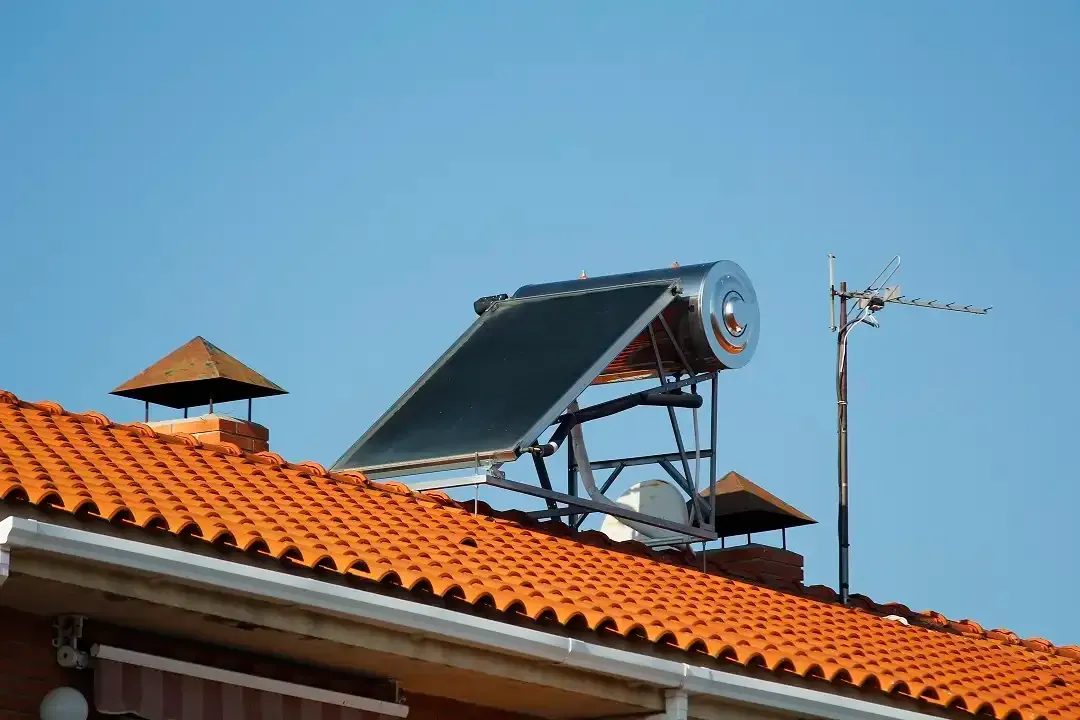
These systems harness the sun’s energy to heat water. Solar panels (usually mounted on the roof) capture sunlight, which is transferred to a water storage system.
- Pros: Very low operating costs, environmentally friendly.
- Cons: High upfront cost, dependent on climate and sunlight availability.
Solar water heaters are best for sunny regions where energy costs are high.
What Are the Types of Boilers?
Conventional Boilers
Also known as traditional boilers, these systems require a different hot water tank and cold-water storage tank. They’re common in older homes with traditional radiator systems.
- Pros: Reliable for large homes, it can supply hot water to multiple taps simultaneously.
- Cons: Requires a lot of space, less efficient than modern systems.
Combination (Combi) Boilers
Combi boilers provide both central heating and domestic hot water without the need for storage tanks. They’re compact, efficient, and great for smaller homes.
- Pros: Saves space, heats water on demand, highly efficient.
- Cons: Struggles with multiple hot water demands at the same time.
System Boilers
A system boiler does not require a cold-water tank; thus, it works efficiently with a hot water cylinder. Compared to other traditional boilers, they are more compact, which makes them easier for larger households.
- Pros: Can provide steady hot water to multiple outlets, good for homes with high demand.
- Cons: Requires installation space for the cylinder.
High-Efficiency Condensing Boilers
These modern boilers capture and reuse heat that would otherwise escape through the flue. As a result, they achieve efficiency levels above 90%.
- Pros: Very energy-efficient, lower fuel bills, environmentally friendly.
- Cons: Higher upfront cost, requires proper installation and maintenance.
How Do Water Heaters and Boilers Work?
Basic Heating Process Explained
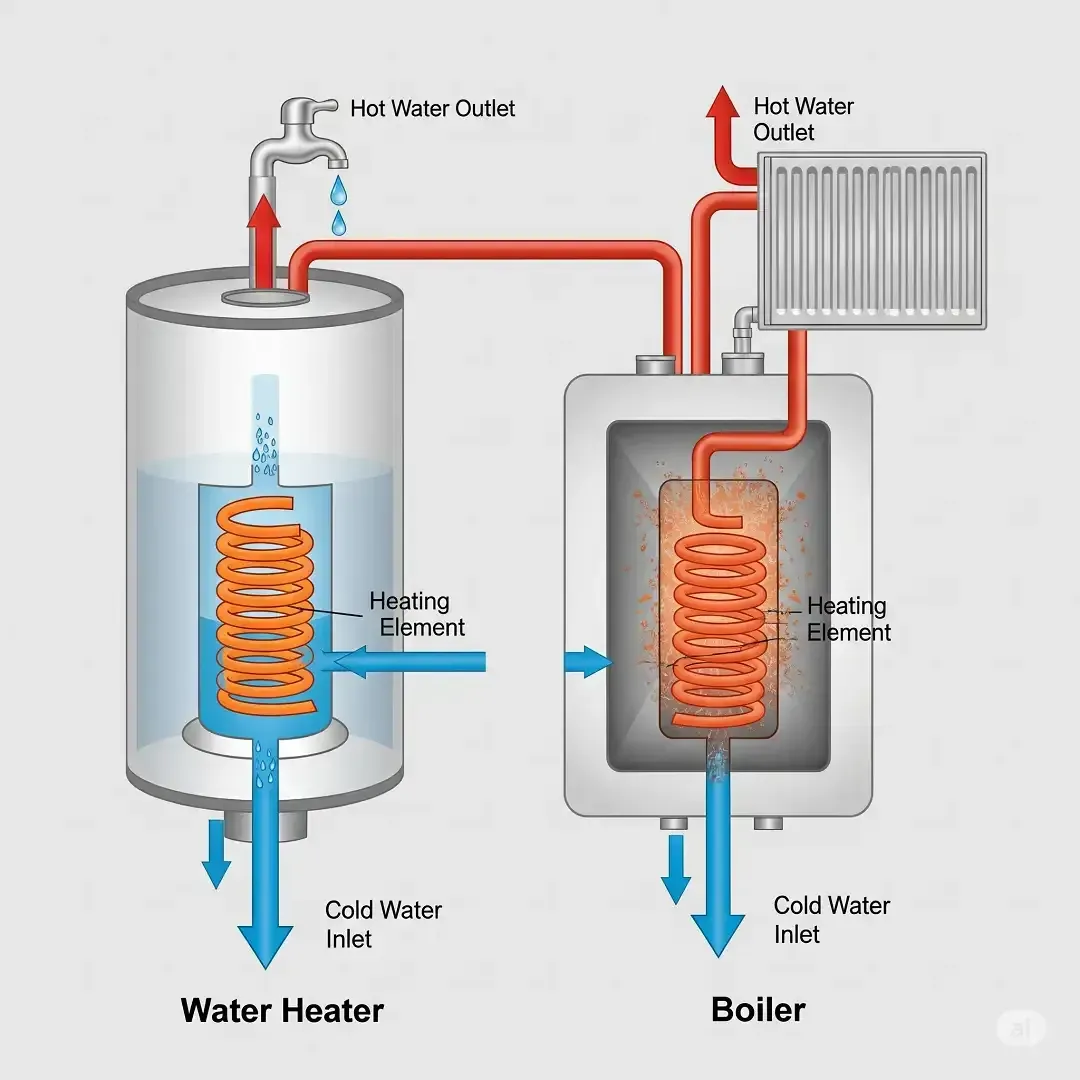
Both systems rely on the principle of heating water, but they do so differently.
- Water Heater: Heats water and stores it (or provides it instantly in tankless models).
- Boiler: Heats water or produces steam, then circulates it through pipes and radiators to provide heat.
Energy Sources
- Gas: Most common, affordable, and efficient.
- Electricity: Widely available, but usually more expensive to operate.
- Oil: Less common today, mainly in rural areas without gas access.
- Solar: Clean energy, but limited by weather conditions.
Efficiency Considerations
The variety of tankless water heaters, condensing boilers to heaters and a range of boilers makes the energy efficiency of the entire system different. The best models are equipped with tankless water heaters and condensing boilers. The best models can save homeowners up to 30% on their energy bill compared to their traditional systems.
Example: BTU Output, Recovery Rates
- Water Heater Example: A 40-gallon gas water heater might recover 40 gallons per hour at a 90°F rise.
- Boiler Example: A residential boiler might output 80,000–150,000 BTUs, sufficient to heat a medium-sized home.
In other words, water heaters measure efficiency in terms of recovery rate (how quickly they reheat water), while boilers are measured by BTU output (how much heat they produce for a home).
How Long Do Water Heaters and Boilers Last?
Average Lifespan
- Water Heater: 8–12 years for tank models, 15–20 years for tankless.
- Boiler: 15–20 years on average, sometimes longer with regular maintenance.
Factors Affecting Longevity
- Water Quality: Hard water causes sediment buildup, reducing efficiency and lifespan.
- Usage: High-demand households put more strain on the system.
- Maintenance: Annual flushing, inspections, and general servicing often improve longevity and performance.
Consider it like a car service: Routine checkups and cleaning improve performance and longevity.
What Are the Costs of Installing and Maintaining Water Heaters vs. Boilers?
Initial Purchase and Installation Costs
In terms of water heaters, they are typically less expensive when compared to boilers. A conventional storage tank water heater can cost anywhere from $800 to $1,500 installed, while a tankless water heater might range from $1,500 to $3,500, depending on the model and labor involved.
Boilers, on the other hand, are a bigger investment. A standard boiler installation may cost between $3,500 and $8,000, while a high-efficiency condensing boiler can run between $6,000 and $12,000 installed. The difference comes from both the complexity of the system and the amount of labor required, since boilers often require additional piping and radiator connections.
For homeowners making a decision, the upfront cost is an important factor—but not the only one. Boilers tend to last longer, and tankless water heaters, while pricier at first, save money over time through reduced energy usage.
Operating Costs by Energy Source
The type of fuel you use has a huge impact on monthly bills:
- Natural Gas: Usually the most affordable and widely available.
- Electricity: Easy to install, but often results in higher utility bills.
- Oil: Less common but still used in rural areas; prices fluctuate.
- Solar: Very low ongoing costs, but it depends heavily on climate and upfront panel installation.
For instance, gas-powered water heaters’ operational expenses are 200–400/year, while electric ones are 400–800/year. Fixed expenses for boilers range from 600 to $1,500 per year based on fuel type, climate, and other efficiency metrics.
Maintenance Costs and Frequency
Both systems have their own maintenance costs:
- Water Heater Maintenance: Requires basic servicing, which includes flushing and checking the anode rod and heating elements. Maintenance expenses are 100–200/year.
- Boiler Maintenance: Annual professional servicing, including pressure checks, cleaning burners, and ensuring safe operation. Maintenance costs average $150–$300 per year.
While boilers are more expensive to maintain, skipping annual service is risky—especially because boiler malfunctions can cause carbon monoxide leaks. Over time, investing in routine care saves far more than the cost of repairs or replacements.
What Are the Most Common Problems With Water Heaters and Boilers?
Water Heater Issues
- Leaks: Tank water heaters often develop leaks as they age, usually from corrosion inside the tank.
- Sediment Buildup: Hard water minerals settle at the bottom of the tank, reducing efficiency and causing rumbling noises.
- Heating Element Failure: In electric models, heating elements burn out over time, leaving you with lukewarm water.
Most of these issues are preventable with regular flushing and inspections. A leaking tank, however, usually means replacement is unavoidable.
Boiler Issues
- Pressure Loss: Boilers rely on stable pressure. Leaks or faulty valves can lead to heating inefficiency.
- Pilot Light or Ignition Failure: Without ignition, the boiler can’t heat water, leaving the home cold.
- Corrosion: Metal components deteriorate over time, especially in older models, leading to leaks or breakdowns.
Because boilers are more complex than water heaters, many issues require professional repair rather than DIY fixes.
Troubleshooting vs. Professional Repair
- DIY Fixes: Flushing a water heater, resetting a breaker, or relighting a pilot light.
- Professional Help: Leaks, electrical issues, gas line problems, or recurring system failures.
The golden rule is: if the problem involves gas, electricity, or pressurized systems—call a professional.
How Do Radiant Heating Systems Use Boilers?
Definition of Radiant Heating
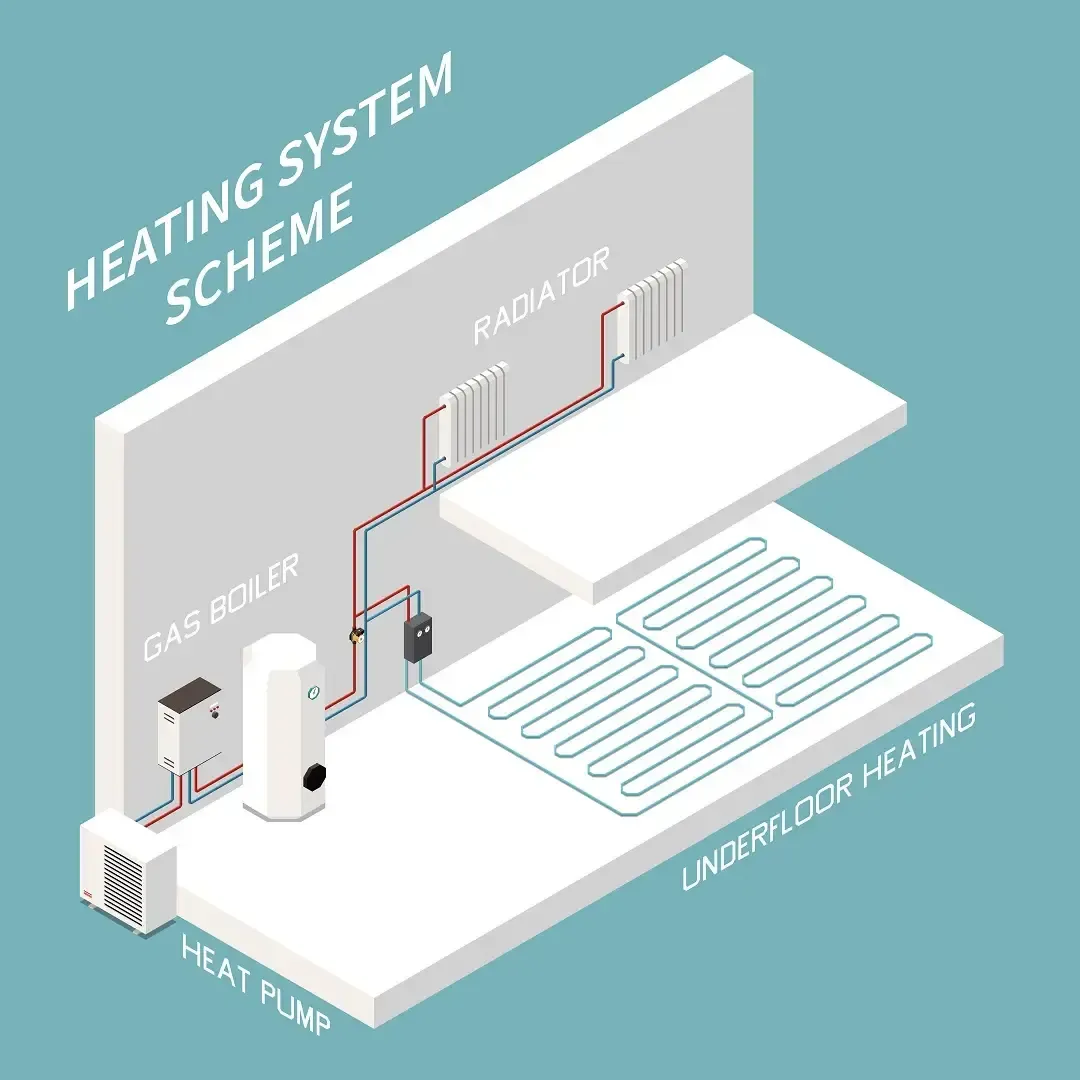
Radiant heating is a home heating method where warmth radiates from the floor (or sometimes walls and ceilings) instead of being blown around by air ducts. This creates an even, comfortable heat that eliminates cold spots and drafts.
How Boilers Supply Radiant Floor Heating
Boilers heat water, which is then pumped through a web of pipes implanted in the floor. As the hot water circulates, it warms the flooring surface, which in turn radiates heat throughout the room. Unlike forced-air systems, this method warms objects and people directly rather than just heating the air.
Some radiant systems use hydronic heating (water-based), while others use electric radiant mats, but hydronic systems powered by boilers are by far the most efficient for whole-home heating.
Pros and Cons of Radiant Heating
- Pros:
- Extremely comfortable and even heat.
- Energy-efficient because it uses lower water temperatures compared to radiator systems.
- Quiet operation with no fans or blowers.
- Improves indoor air quality since there is no dust circulation.
- Cons:
- Retrofit radiant heating systems are costly to install.
- Response time is slower when compared to systems utilizing forced air.
- Pipes buried under flooring are more complicated when repairs are needed for leaks.
Radiant heating is considered a luxury feature, but for those building new homes or undergoing major renovations, it can dramatically increase comfort and long-term energy savings.
How to Choose the Right System for Your Home?
Consider Household Size, Water Demand, and Climate
- Small Household: A tankless water heater or combi boiler may be enough.
- Large Household: A storage tank water heater or system boiler with a hot water cylinder is better.
- Cold Climate: A boiler system is often the smarter choice since it provides both heating and hot water.
Fuel Availability and Energy Efficiency
If natural gas is available, it’s often the cheapest and most efficient fuel. Homes without gas may have to rely on electricity, propane, or oil. For those wanting sustainability, solar water heating or high-efficiency condensing boilers are excellent investments.
Space Requirements
- Water Heater Tanks: Require significant floor space, usually in basements or utility rooms.
- Tankless Water Heaters: Wall-mounted and compact.
- Boilers: Require dedicated installation space, especially conventional systems with separate tanks.
Homeowners with limited square footage often opt for combi boilers or tankless water heaters to maximize space.
Incentives and Rebates for Energy-Efficient Systems
Governments and utility companies often provide rebates or tax credits for upgrading to energy-efficient appliances. For instance:
- U.S. homeowners may qualify for federal tax credits when installing ENERGY STAR-rated water heaters or boilers.
- Local incentives may also apply, such as rebates for installing solar water heaters or high-efficiency gas boilers.
When deciding, it’s worth checking local programs that can offset part of the upfront cost.
Safety and Environmental Considerations
Safety Checks
Water heaters and boilers deal with pressurized water, electricity, and sometimes combustible fuel. Safety is crucial.
- Water Heaters: Should be fitted with a pressure relief valve to prevent tank explosions.
- Boilers: Require regular venting checks to prevent dangerous gas buildup. Carbon monoxide detectors are a must in any home with a gas or oil boiler.
Environmental Impact
Operating older, inefficient systems is very costly in terms of emissions for the environment. Oil or coal electricity boilers are notorious for their inefficient and carbon-heavy emissions. There are condensing and solar options that lessen the emissions dramatically.
Sustainable Options
- Solar Water Heaters: Zero emissions during operation.
- Condensing Boilers: Capture and reuse waste heat for greater efficiency.
- Hybrid Water Heaters: Reduce electricity use by up to 60% by utilizing heat-pump technology.
Opting for eco-friendly decisions always helps save on bills while simultaneously reducing one’s environmental impact in the long run.
Conclusion
Water heaters and boilers are two key systems in the home, each with its own distinct functions. Water heaters focus on providing hot water for everyday use, while boilers excel at heating homes—sometimes doubling as water heaters in combi models. Your household's size, financial situation, fuel availability, and climate all affect the best option.
When maintained properly, both systems can last over a decade and save you money on energy bills. Upgrading to modern, high-efficiency models not only enhances comfort but also improves sustainability.
FAQs
1. Can I replace my water heater with a boiler?
Not directly—boilers are designed primarily for heating, though combi boilers can provide hot water too.
2. Which is cheaper to run: a boiler or a water heater?
Generally, water heaters are cheaper to run since they only heat water, while boilers heat the whole home.
3. How do I know when to replace my water heater or boiler?
Look for signs like leaks, frequent repairs, strange noises, or rising energy bills.
4. Do boilers and water heaters require annual maintenance?
Yes. Annual servicing helps extend lifespan and ensures safety, especially with gas or oil systems.
5. What is the most eco-friendly option for hot water and heating?
Solar water heaters and condensing boilers are among the most sustainable options available.
